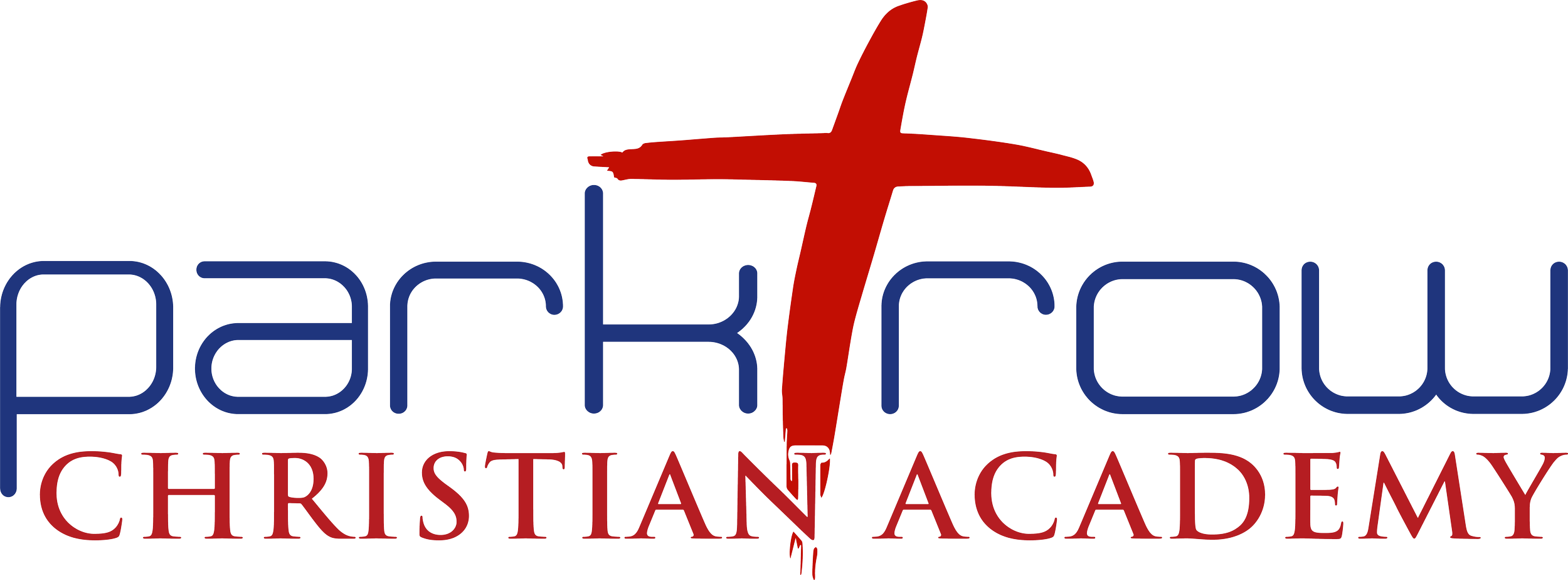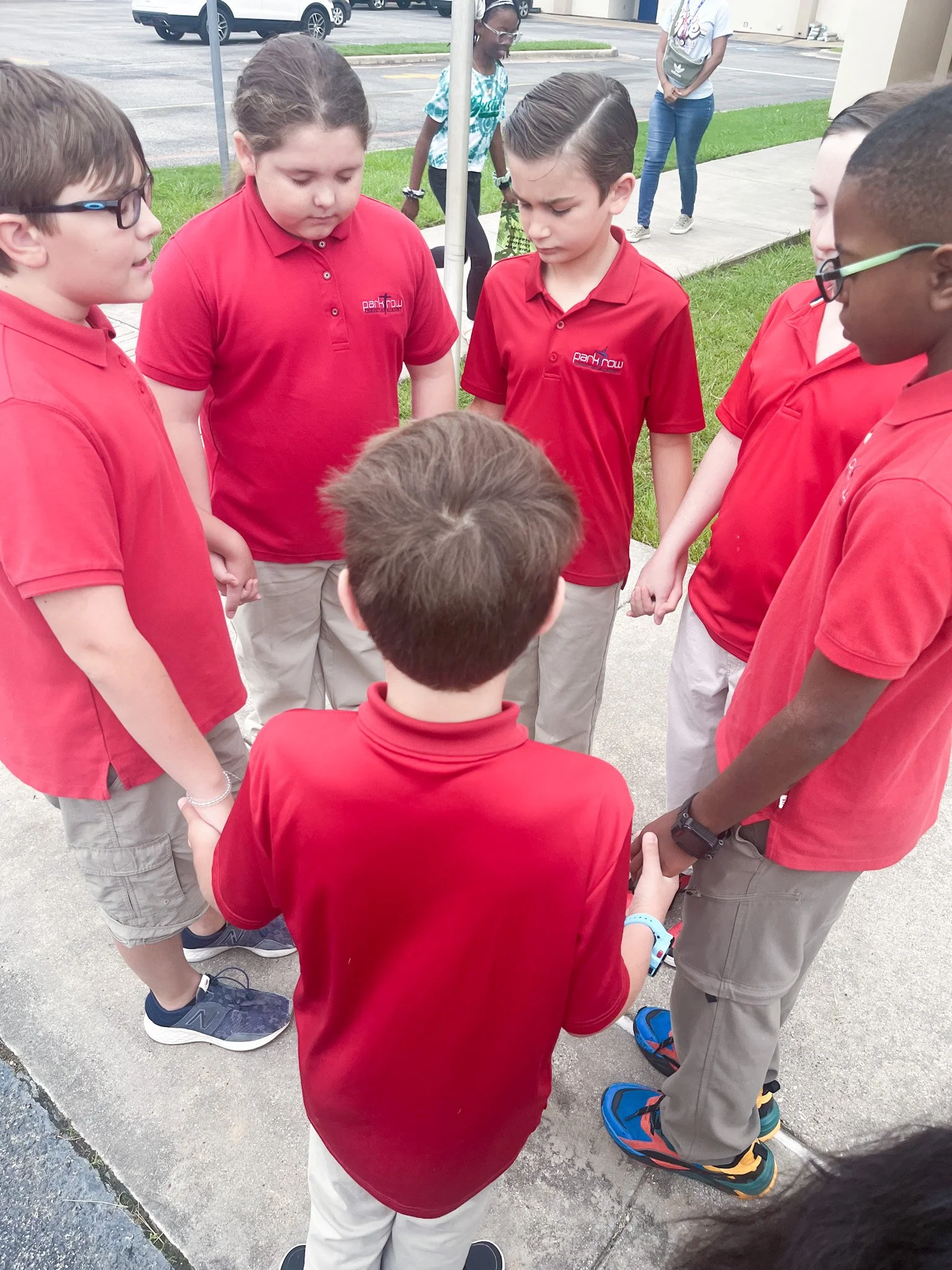elementary
What makes PRCA unique in private christian education?
As a private, Christian academy, our mission is to build an eternal foundation, while also maintaining affordable tuition. Our students enjoy a low student/teacher ratio and the community of a small school.
Curriculum Overview
At Park Row Christian Academy, we are committed to providing an education that not only excels academically but also nurtures spiritual growth and character development. Our carefully selected curriculum is designed to challenge, inspire, and prepare our students for success in all areas of life. Here's how:
Bible:
Central to our mission is the spiritual formation of our students. Students attend weekly chapel where they have the opportunity to participate in worship and praise. Biblical instruction is furthered through the incorporation of daily lessons utilizing the ABEKA Bible curriculum which is designed to immerse students in Scriptures, fostering a deep, personal relationship with Jesus Christ.
Our Bible classes go beyond mere study; they are opportunities for students to grow in Christian character, learning virtues like kindness, integrity, and service through stories, discussions, and application.
ABEKA Phonics and Language (K-2nd)
Our commitment to literacy begins with ABEKA's proven phonics method, ensuring that each student builds a strong foundation in reading and writing. This curriculum not only teaches students to read but also instills a love for language that will last a lifetime. Through systematic phonics instruction, students master the sounds and symbols of English, leading to confident, fluent readers. Beyond reading, we focus on language arts skills like spelling, grammar, composition, and literature, all taught from a Christian perspective, encouraging students to express themselves effectively and ethically.
Reading Street (3rd-6th)
Reading Street is at the heart of our language arts program, designed to turn every student into a confident, proficient reader. This curriculum combines comprehensive reading instruction with Christian values, ensuring that literacy development is both fun and meaningful. Students engage with a variety of texts that explore themes of faith, courage, and community, fostering not just reading skills but also a love for stories that reflect our Christian ethos.
Eureka Math:
To excel in mathematics, we employ Eureka Math, a curriculum celebrated for its depth and coherence. Eureka Math engages students with a story-based approach to learning, making abstract concepts tangible and understandable. This curriculum not only prepares our students for advanced mathematical studies but also teaches them to apply math in real-world scenarios, fostering problem-solving skills and logical reasoning.
Texas Studies Weekly:
For Science and Social Studies, we utilize Texas Studies Weekly, which is tailored to meet Texas educational standards while sparking curiosity about the world. This curriculum provides current, engaging content that connects local Texas history and geography with broader scientific concepts. It encourages students to become informed, active citizens who understand both their community and the wider world.
FAQ
Why choose a Private Christian School?
Christian education guides our students academically and socially.
Science classes are based on the fact that God is the creator of our world.
Our students study Bible every day
There is a weekly, school-wide chapel service.
Religious schools have higher academic performance, narrower achievement gaps, and better behavioral outcomes than traditional public schools and public charter schools. These findings are from a meta-analysis of 90 studies on the effects of schools conducted by William Jeynes, senior fellow at the Witherspoon Institute in Princeton, NJ.
What is your student-to-teacher ratio?
Our Kindergarten class has a ratio of 20:2 and our First through Sixth grade classes have a ratio of 16:1.
What are the office hours of the school?
Our office is open from 7:00 AM to 6:00 PM on days school is in session. Summer office hours are weekdays 7:30 AM to 5:30 PM.
What are the times for your elementary classes?
School begins at 8:00 AM and dismisses at 3:30 PM.
Do you offer before and after school care?
A limited number of spots are available in our before and after care program. It is available from 7:00 AM until school begins and then from 3:30 PM to 6:00 PM.
Do you offer a school lunch program?
At this time we do not, however we are looking into an option for the future.
Do you offer summer care?
Yes! We do! If your child is currently enrolled or enrolled for the next school year, then your kiddo can hang out with us for the summer!
Do your students wear uniforms?
Yes, our uniform provider is Visual Impacts. Our uniforms are reasonably priced, kid-friendly uniforms. A complete list of acceptable uniform pieces is available at Visual Impacts and through our school office.









